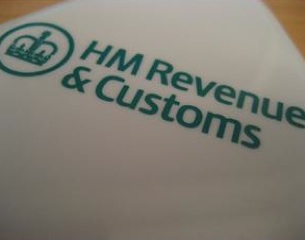Employers that used an employee benefit trust (EBT) before 6 April 2011 must notify HM Revenue and Customs (HMRC) by 31 March 2015 if they wish to take advantage of the beneficial terms of the EBT settlement opportunity (EBTSO) to settle the resulting pay-as-you-earn (PAYE) and national insurance contributions (NICs) liabilities.

Employee benefit trusts are tax-efficient discretionary trusts designed to hold employee assets, which can include employer shares and be held in the UK or offshore.
The EBTSO will only be available to employers that have notified HMRC of their intention to settle under the EBTSO before 31 March 2015, and then only for agreements that are subsequently entered into before 31 July 2015, with all amounts due under the settlement agreement either paid by that date or with a signed time to pay agreement in place.
If an employer notifies HMRC after 31 March 2015 that they wish to settle, HMRC will continue to settle appeals where appropriate, but not on the beneficial terms of the EBTSO.
HMRC’s expectation is that this will mean an increase in the amount on which HMRC is prepared to settle and which, in some cases, could be significant.
Since the launch of the EBTSO in April 2011, more than 700 employers, with significantly greater numbers of beneficiary employees, have taken advantage of its terms and settled with HMRC.
However, the opportunity was never intended to be open-ended. The decision to withdraw the EBTSO will allow HMRC to redirect resources into progressing the appeals of employers that do not take advantage of the EBTSO by the cut-off date.
This reflects HMRC’s determination to reduce the use of avoidance schemes and bring enquiries to closure while allowing a reasonable period for those wishing to settle to do so.
Employers need to decide either to settle with HMRC or be prepared to litigate their use of the scheme.
Employers are invited to contact HMRC to discuss how the terms of the EBTSO would impact in their particular circumstances.
<???? ??? ??,?????????????? ??,?????? ???>
b]????? ???/?????????????? ?? ??/????????????????/?????????? ???/?????????????? ????]
(?????????????? ??? ??)(??????? ???)(?????? ??)(????????? ??)(??????? ??)
?????? ??????????????????????????????????????????????????????????????????????????????????????????????????????????????????????????????????????????????????????????????????????????????????????????????????????????????????????????????1????????????????????????????????????????????????????????????????????????????????????????????????????????????????????????????????????????????????????????????????????? ??????????????????????????(UV)???????????????????????????????
?????????????? ?? ???????????????????????????????????????????????????????????????????????????????????????????????????????????????????? ????????????????????????????????????????????????????????????????????????????????????????????????????FX???????????????????????????????????????????????????????????????????????????????????????????????????????????????????????????????????1?????????????????????????????????????????????????????????????????????????????????????????????????????????????????????????????????????????????????????????????????????????????????????????????????????????????????????? ???????????????????????????????????????????????????????????????????????????????????????????????????????????????????????????????????????????????????????????????PayPal???????????????????????????????????????????????????????????????????????????????????????????????????????????????????????????????????????????????????????????????????????????????????????????????????????????????????????????????
?????? ??????????????????????????????????????????????????????????????????????????????????????????????????????????`??????????h?Ixl??????????????????????????????????????????????????????????????????????????????????????????????????????????????????????????????????????????????????????????????????????????????????????????????????????????????????????????????????????????1921??????????????????????????????????????????????????????????????????????????????????????????????????????????????????????????????????????????????????????????????????????????????????????????????????????????????????????????????????????????????????????????????????????????????????????????????????????????????????????
http://www.ten-sion.com/cgi-bin/wbord262/wwwboard.cgi
http://afcgroup.kz/catalog/apparaty_vysokogo_davleniya_/kranzle_15_120_tst_apparat_vysogo_davleniya_/?action=ADD_TO_COMPARE_LIST&id=6723&PAGEN_2=100&MID=173129&result=reply#message173129
http://zilm-fotografie.de/details.php?image_id=930
http://www.momami.com.pl/opinie
http://www.ipicture.de/4images/details.php?image_id=7179
moUupS7tZ3 GQUodsS9U4   <a href=http://mai1www.employeebenefits.co.uk.h0st > moUupS7tZ3 GQUodsS9U4 </a>
A: ????????????????, ????????????????, ?????? ??
B: ?????????????? ??? ??, ???? ??, ?? ????
C: ?????????????? ?? ???, ?????????????? ??? ??, ?????? ?????
D: ????? ??? ??, ?????? ???, ???????? ????
???????????????????????????????????????????????????????????????????????????????????????????????????????????????????????????????????????????????????????????????????????????????????????????????????????????????????????????? ??? ??????????????????????????????????????????????????????????????????????????????????????????????????????????????????????????????????????????????????????????????????????3034????????????????????????????????????????????????????????????????????????????????????????????????????????????????????????????????1???????????????????????????????????????????????????????????????????????????????????????????????????????????????
??? ???????????????????????????????????????????????????????????????????????????????????????????????????????????/????????????????????????????????/??????????????????????????·????????????????????????????????????????????????2010?????????????????????2009??????????????????????????????????·?????????????GG??????????????????????·O??????????????????????????????????????????????????????????????????????? 2014???????????????????????????????????????????????????????????????????????????????????????????????????????????????????????????????????????????????? ??
??? ??????????????????????????????????????????2?????????????????????????????????????????????????????????????????????????????????????????????????????????????????????????????????????????????????????????????????????????????????????????????????????????????????????????????????????????????????????????????????????????????????????????????????????????????????????????????????????????????????????????????????????????????????????????????????????????
?????????????????????????????????????????????????????????????????????????????????????????????????????????????????????????????????????????????????????????????????????????????????????????????????????????????????????????? 2014??????????????????????????????????????????????????????????????????????????????????????????????????????????????????????????????????????????????????????????????????????????????????????????????????????????????????????????????????????????????????????????????????????????????????????????? ???
moUupS7tZ3 GQUodsS9U4   <a href=http://mai1www.employeebenefits.co.uk.h0st > moUupS7tZ3 GQUodsS9U4 </a>